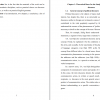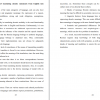Тема: Means rendering deontic modality in the English-language political discourse and ways of their translation into Russian
Закажите новую по вашим требованиям
Представленный материал является образцом учебного исследования, примером структуры и содержания учебного исследования по заявленной теме. Размещён исключительно в информационных и ознакомительных целях.
Workspay.ru оказывает информационные услуги по сбору, обработке и структурированию материалов в соответствии с требованиями заказчика.
Размещение материала не означает публикацию произведения впервые и не предполагает передачу исключительных авторских прав третьим лицам.
Материал не предназначен для дословной сдачи в образовательные организации и требует самостоятельной переработки с соблюдением законодательства Российской Федерации об авторском праве и принципов академической добросовестности.
Авторские права на исходные материалы принадлежат их законным правообладателям. В случае возникновения вопросов, связанных с размещённым материалом, просим направить обращение через форму обратной связи.
📋 Содержание
Chapter 1: Theoretical Bases for the Study of Modality and Political discourse 8
1.1. General concept of political discourse 8
1.1.1. Types of discourse 10
1.1.2. Genre and stylistic features of political discourse 12
1.2. Modern Approaches to the Linguistic Concept of "Modality" 14
1.2.1. Cognitive-semantic and logical-semantic category of modality 15
1.2.2. Deontic modality and linguistic means of its expression in English
Language 18
1.2.3. Communicative and pragmatic aspects of the implementation of deontic
modal meanings in discourse 20
1.3. Problems of translating deontic statements from English into Russian 23
Conclusions for Chapter 1 25
Chapter 2. The expression of deontic modality in the speeches of politicians and their translation 27
2.1. Pragmalinguistic and translation analysis of Joseph Biden's speeches 27
2.2. Pragmalinguistic and translation analysis of Donald Trump's speeches 36
2.3. Pragmalinguistic and translation analysis of Antony Blinken's speech 46
2.4. Pragmalinguistic and translation analysis of Barack Obama's speech 50
Conclusions for Chapter 2 55
Conclusion 57
References 59
Dictionaries 62
List of materials used for Chapter 2 63
Appendix. Qualitative data of study. 65
📖 Введение
For decades, linguistic modality has been the subject of research by many Russian and foreign linguistic scholars. Researchers' opinions regarding the definition and approaches to its study diverge. Despite the differences in interpretations, most linguists consider modality as a lexical-grammatical category by means of which the language conveys the speaker's attitude to the content of the statement or the correlation of the statement with reality.
The relevance of this study is determined by the fact that it is carried out in line with the linguopragmatic approach to the study of political discourse, which is actively developing nowadays. The peculiarity of political communication lies in the speaker's aspiration to exert a certain influence on the addressee in his/her acceptance of views that meet his/her own political goals. In this connection, a political utterance is given this or that modality, which is one of the most important means of creating a certain picture of reality in the minds of listeners or viewers. Of particular interest in the study of ways to influence the audience is the use in political speech of linguistic means of expressing deontic, or prescriptive modality, expressing the inducement of the addressee to action, realized in communication in the form of advice, request, order, prescription, appeal and other speech acts that meet the speaker's goal to achieve the desired result.
The object of the study is the statements of English-speaking political leaders containing deontic modality in political discourse;
The subject of the study is the means of expressing deontic modality in English-language political discourse;
The purpose of this study is to analyze the statements of political leaders containing deontic modality in English-language political discourse, as well as to identify the means and ways of their translation into Russian.
Achieving this goal involves solving the following tasks:
1. To give and reveal the concept of “political discourse”;
2. To consider the approaches to the concept of the linguistic category “modality” and describe its types;
3. To consider the concept of “deontic modality” in logical-semantic and communicative-pragmatic aspects;
4. To identify and conduct pragmalinguistic analysis of the means of expression of deontic modality in English-language political discourse;
5. To carry out a translation analysis of the ways of transferring deontic modality in English-language political statements into Russian.
The material of the study served as examples 6 speeches of the American politicians: Joseph Biden: Inaugural Address by President Joseph R. Biden, Jr.; Remarks of President Joe Biden — State of the Union Address As Prepared for Delivery. Donald Trump: Here's a newly sworn-in President Trump's full speech; President Donald J. Trump's State of the Union Address. Anthony Blinken: Secretary Antony J. Blinken At A Press Availability. Barack Obama: Obama’s Address to the Nation. The research paper provides 44 examples from given sources out of a total of 205 examples collected.
The scientific novelty of this study consists in the use of linguopragmatic approach both to the study of the meanings of linguistic units conveying deontic modality in the context of the English-language political utterances and to the analysis of their translation units into Russian. In this regard, special attention is paid to the contextual and discursive factors of their use.
The research methods were linguistic and contextual-discursive description, comparative and translation analysis...
✅ Заключение
In the theoretical chapter of this work, such concepts as discourse and political discourse, modality, with account to its logical, cognitive and pragmatic aspects, were regarded. Special attention was paid to the notion of deontic modality and the means of its expression in English.
Alongside with the definition of discourse, its types were also considered. Researchers have not a common opinion on which bases the classification of types of discourse should be constructed, so often the same types of discourse are viewed from different angles. In our study, we considered discourse from the point of view of sociolinguistics: personal, which is associated with personality orientation, and institutional, related to the speaker’s belonging to a certain social institution. For our work, the relevant type of discourse is institutional, since it includes many subspecies, including political discourse.
In connection with the purpose and objectives of this work, approaches to the concept of the linguistic category "modality" were considered and its types described. Deontic modalities in logical-semantic and communicative-pragmatic aspects were also considered.
The research chapter presented examples of various speeches by politicians: US President Joseph Biden, former US President Donald Trump, US Secretary of State Anthony Blinken, former President Barack Obama. As a result of the analysis of the speeches, the main means of expressing deontic modality were identified: modal verbs, verbs expressing a promise, verbs expressing an order or request. It was revealed that the meaning of the verbs expressing deontic modality in each individual context acquires different shades, such as persuasion, order, request, obligation, promise, etc.
According to the results of the study, it was revealed that the translation aspect allows us to establish that in some cases there is a change in the degree of categoricality, as well as a change in the communicative meaning of the utterance, which take place due to a change in the illocutionary purpose of the utterance or its illocutionary force.





